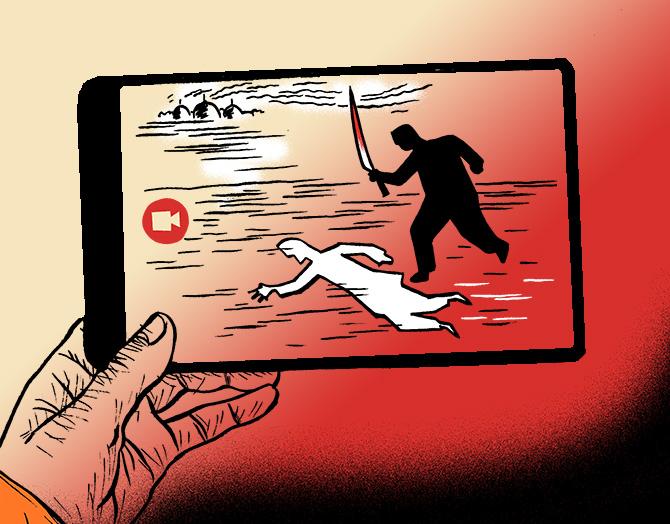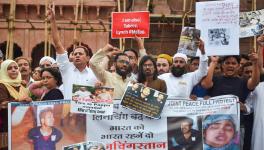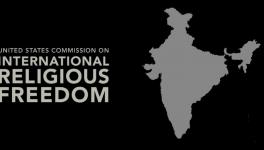WhatsApp Does Not Create Lynch Mobs, People Do

The spate of lynchings related to rumours of child lifting, has now affected a large part of the country with new incidents being reported every day. Clearly, this is not simply the unintended consequence of WhatsApp, as the government would have us believe. Or that some tinkering with WhatsApp, in close “consultation” with Facebook of course, by the owners of WhatsApp, will solve the problem. The Information and Broadcasting Ministry’s earlier initiative of regulating news portals and targeting critical news websites is now sought to be dovetailed into this narrative. Under the guise of the need to control social media, we are likely to see measures directed towards censorship of digital media and muzzling of public criticism of the government.
What the Modi government is hiding from its people is that WhatsApp groups have been the main driver of the rumour machine of the Hindutva organisations. It has been used over the last few years to start communal riots, attack minorities, orchestrate hate against rationalists, and spread rumours on cow slaughter. This has been coupled with the complicity of the police and the state machinery, who have either filed cases against both, the perpetrators and the victims, or sometimes only against the victims. In almost all cases, the state machinery has effectively let the perpetrators go scot-free, while pursuing cases against the survivors or the victims’ families. Even today, the case against Akhlaq’s family for possession of “forbidden” meat continues with trumped up evidence.
It is this tacit alliance of the hate mongering with the state that is leading to the sense of impunity with which the mobs are operating and dealing out “rough and ready” justice as they see it. Prejudice and hate has taken over, with the state either conniving or retreating in the face of lynch law and lynch mobs. It is not the rumour mills by themselves that cause riots or breakdown of law and order. It is the the complicity of the state with communal forces and the sectarian divisions within society, that has created the monster of lynch mobs and riots.
Also Read: Political Silence Over Lynchings is Sanction by Another Means
Rumours are not new; they have always been circulated among people. Most of the times, they do not even create a ripple in society. They are treated just as one possible source of information that needs to be verified. Some people are more credulous, however, believing anything that they hear while others are more sceptical.
Rumours become dangerous only when society is already divided, and tensions high. It is under these conditions that rumours thrive and can and do trigger riots. The situation is spinning out of control today with mob lynchings because this government and the party in power have actively sought to divide society. It is this atmosphere of hate within which rumours act to light the fuse of mob violence.
Does social media have no role to play in such cases of mob violence? Here, it is important to distinguish between websites, social media, and group messaging platforms such as WhatsApp. While websites and social media platforms like Facebook and Twitter are public spaces, group messaging platforms are more like private spaces. Consequently, the laws dealing with public and private spaces are different.
Those who are operating websites or using Facebook and Twitter, have the same legal responsibilities as anybody else in a public space. Any articles or news appearing on such sites are subject to laws: from civil or criminal liability for slander, to criminal liability for inciting hate and violence. Social media platforms such as Facebook and Twitter allow any individual to use their platform for creating their individual “sites”, even if they are not seen by the people using such platforms to be so. In effect, they are running “websites” – Facebook pages/accounts – or doing micro blogging, using Twitter. Each user has the same responsibility as any newspaper, website or anybody in the public space has, with respect to what they say or write. Facebook and Twitter are not private spaces, and any activity there, has the same responsibilities and liabilities as any activity in any other public space.
Platforms such as Facebook and Twitter are treated as intermediaries, not the owners of the content on these sites. They have what is called intermediary liabilities, under the Information Technology Act. They have the responsibility to take down offensive content once it is brought to their notice, but the primary legal responsibility for the content on Facebook pages/accounts, or Twitter handles, are of the users.
Also Read: Hate Them, Kill Them – Lynch Mobs Kill 27 Across 14 States
Legally, what is our responsibility if we re-tweet or share a Facebook post? Currently, the legal opinion is that by sharing or re-tweeting, we also are responsible for the opinions we are re-tweeting or sharing; just as a website or a newspaper is not free of liability for republishing what has appeared on other sites. By republishing, and for social media platforms, by sharing or re-tweeting, we carry similar responsibilities and liabilities.
What happens in the case of WhatsApp? WhatsApp as a platform is not a public space and therefore, has to be treated as a private space. A message is like a private letter. So group messaging is like group mailing. Other group messaging platforms, for instance, are Google or Yahoo email groups.
Any evidence that such groups are being used for any criminal activity, in this case, incitement to violence, is of course subject to laws of the land. It is incumbent on these platforms to cooperate with the law and order machinery to provide evidence in any manner that may be required. But this requires—as any search operations of the home of a suspect would—to be done under the due process of law. The IT Act and the various existing provisions of the Criminal Procedure Act, governs this space as it does any other space. Such laws differentiate between public and private spaces, and these laws can be applied to differentiate between public and private spaces on the internet as well. The rules under these acts can address any such issue and it does not require any new law. Technology, be it telephones or the internet, does not change the basic scope of the laws.
Simply put, any WhatApp group that is used for inciting violence and creating riots, needs to be investigated. If there is evidence of inciting violence and riots, the persons concerned—who have either posted or forwarded such incitements to violence—are criminally liable for their acts. Facebook, as the owners of the WhatApp platform, have the responsibility of cooperating with the law and order authorities following the procedures laid down under various acts, and prima facie evidence that a crime has been committed using their platform.
Why then, the talk of new procedures to deal with mob violence and WhatsApp? The police have refused to act as an impartial law and order agency, in cases of mob violence and communal riots or when dalits have been attacked by mobs. It is not the absence of legal instruments or police powers, but the complicity of the state machinery with such violence, that the culprits roam free. In UP, this has worsened under the Adityanath Government, where criminal cases against those involved in riots, are now being sought to be withdrawn. It is not the weakness of the law against new technology that is the root of the problem, it is the unwillingness of the law and order machinery to act against criminals.
Arguing that digital platforms such as WhatsApp make investigations difficult under existing law is completely bogus. Yes, mass communications or group messaging is faster and has a wider reach because of new technologies and digital platforms. Yes, communications of all kinds—-from what we eat, to our political opinions and spreading peace or hatred—has become much easier with smart phones and the internet. But, tracking or securing evidence is also easier now. The messages remain on the cell phones, it is known who or which groups are circulating them, and even video evidence is available in most cases.
One could argue that the police are helpless against a large mob, or a large mob gathers quickly due to the new technologies. But why are the police helpless to act after the incident against the culprits? Can the Modi government – the Prime Minister and the Home Minister – explain, why in spite of all the evidence circulating in the public sphere, including videos of such violence, very few have been punished? Or why cases are filed against the victims and their families?
The primary issue in the rise of mob violence and lynchings is the connivance, at worst, and abdication of the state and its law and order machinery against hate crimes and spreading hate, at best. Assassination of rationalists and mob lynchings are the consequences of such connivance and abdication. It is not the laws that are failing us. It is the keepers of laws – the law and order machinery – who are failing us.
Also Watch: Unmasking the Media With Bhasha Singh-Episode 8, Mob Lynching, Kashmir and Rumours
Get the latest reports & analysis with people's perspective on Protests, movements & deep analytical videos, discussions of the current affairs in your Telegram app. Subscribe to NewsClick's Telegram channel & get Real-Time updates on stories, as they get published on our website.
























